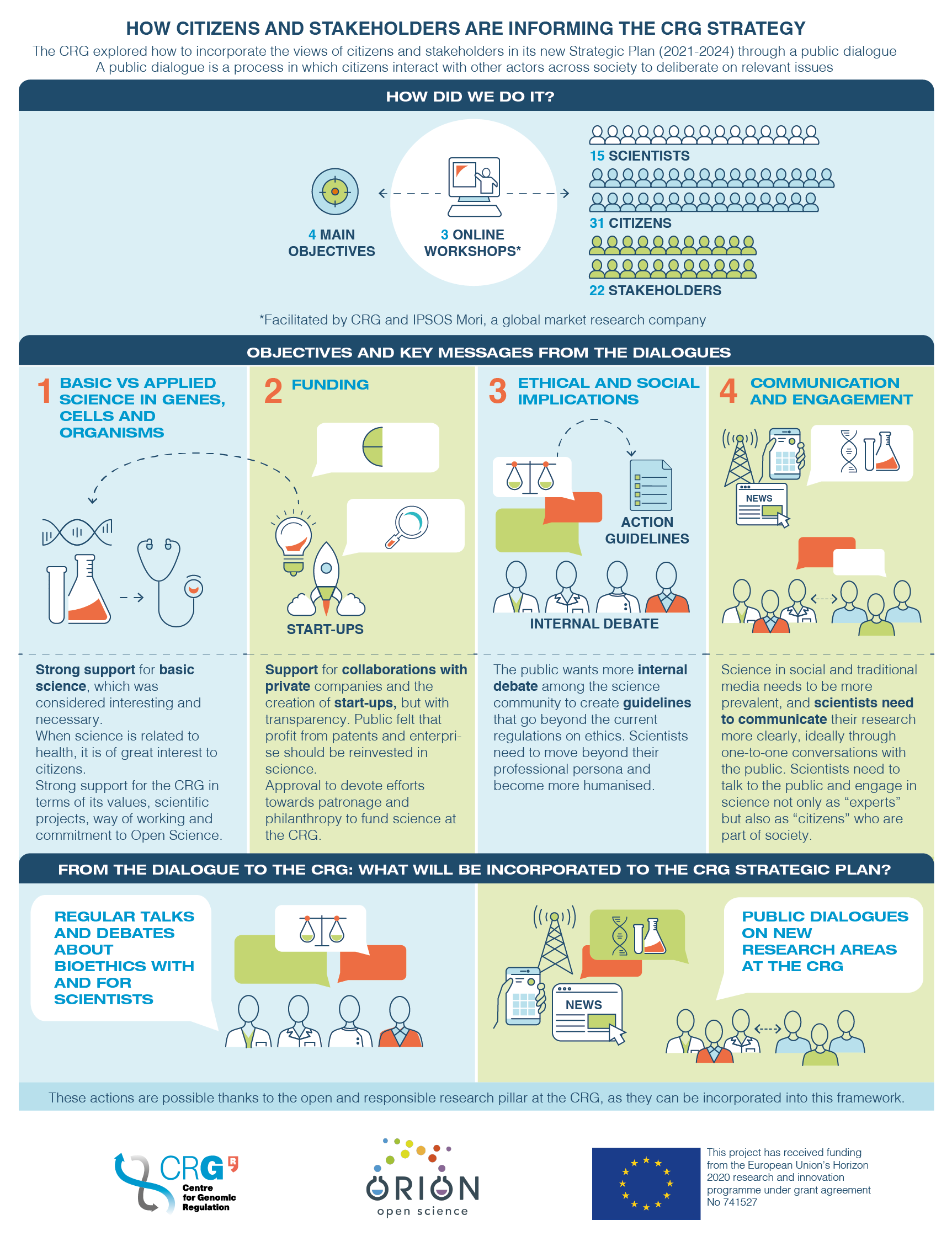Long-lived institutional change has always been one of the goals of ORION. It’s relatively easy to find and convince like-minded people that responsible research and innovation (RRI) is important. However, in order to bring about real change, it’s important to engage with people all the way through an institution. Only then can true institutional change become a reality.
The Centre for Genomic Regulation (CRG) in Barcelona is a world-renowned institute for biomedical research. As such, Responsible Research and Innovation (RRI) policies and strategies implemented there will have a significant impact, not only on their own research but also on an international community that looks to them for inspiration. As an ORION partner, the CRG took part in many activities including a public dialogue to discuss the CRG strategy.
The ORION team at the CRG planned a workshop to define the scope of their public dialogue on site in Barcelona. As the time came for the first workshop, senior figures of the CRG were slightly skeptical about the exercise, although it was unclear as to why. Perhaps the benefits of the public dialogue were unclear or perhaps it seemed that implementing RRI would be resource intensive and distracting from the world class research. It was essential to get the buy-in of senior figures to introduce real institutional change and the ORION team had to win them over.
In total there were three workshops on the public dialogue and the senior figures attended two of them. The ORION team noticed a shift in their engagement and, as the workshops progressed, they appeared more open. This gave hope that the value that RRI could bring to the institute was being appreciated, and that even it could support their goals in research excellence.
After the workshop, it was clear that senior figures were enthusiastic about RRI. Discussions were positive and there was a lot of momentum for creating real change. However, this is normal after an event like a conference or a workshop. The difficulty is often maintaining the momentum and following through on plans and promises to implement.
The CRG senior figures and the ORION team were able to continue discussions and maintain the momentum for all the ideas generated through the workshop. This led directly to the production of a number of communications materials, such as an infographic for disseminating the public dialogue, and of course the ultimate aim was to inspire other institutions to consider developing a similar initiative themselves. Guidelines on how to organise a public dialogue in a biomedical research centre have subsequently been developed.
However, the biggest change came slightly later when senior management implemented two new actions into the CRG strategy that directly addressed RRI and came directly from the public dialogue. Specifically, a series of regular talks about ethics for scientists has been introduced and commitment gained to run two more public dialogues on specific research topics of the centre. In addition to these new actions, a more humanised, personal and impactful public engagement strategy, with a strong focus in social media, has been also implemented.
This was a huge success for the ORION team, who were hoping to have meaningful dialogues with the senior management of the CRG and have an impact on the centre’s strategy but didn’t necessarily expect the implementation of new actions to come about so quickly. This goes to show that there is an appetite for RRI within research institutions.

More information
Please get in touch with Marta Solis at the Centre for Genomic Regulation to learn more about the public dialogue and have a look at the report.
Further reading
